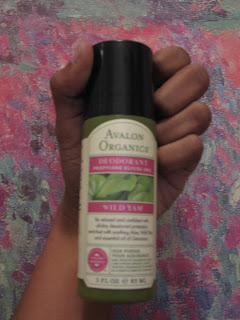 I don't normally do this but here I go...I don't like all this attention to the Rev Wright's statements. And what's worse, I don't find Obama's "Race Speech" to be all that uplifting either. I find all this to be powerfully depressing, not because it's something new to me but because I was just starting to get used to the idea, you know that tickle in your gut when your brain fixates on the idea of an Obama presidency for a pure 3 seconds, that smile that suddenly starts to form out of the corner of your mouth despite yourself, that welling of tears when you realize that powerful desire you've had so long is shared -- to be free from fear. But with all the speculation taking place in the last few days, do we really have to wait another generation for it to be real? Does fear grip us so tightly that we're bound by our parents generation's overwhelming sense of inadequacy? All I have been seeing and hearing the past two weeks is fear. And the irony is that for all intents and purposes Obama has already won the delegate race. So what's the deal?
I don't normally do this but here I go...I don't like all this attention to the Rev Wright's statements. And what's worse, I don't find Obama's "Race Speech" to be all that uplifting either. I find all this to be powerfully depressing, not because it's something new to me but because I was just starting to get used to the idea, you know that tickle in your gut when your brain fixates on the idea of an Obama presidency for a pure 3 seconds, that smile that suddenly starts to form out of the corner of your mouth despite yourself, that welling of tears when you realize that powerful desire you've had so long is shared -- to be free from fear. But with all the speculation taking place in the last few days, do we really have to wait another generation for it to be real? Does fear grip us so tightly that we're bound by our parents generation's overwhelming sense of inadequacy? All I have been seeing and hearing the past two weeks is fear. And the irony is that for all intents and purposes Obama has already won the delegate race. So what's the deal?Who cares the reason why one person supported Obama over another. We are not all the same cloned people. We don't all have to have the same exact reason for voting for someone. There is no magic correct formula for liking a candidate. You have to like their policy, but don't like their racial-ethnic (or gender for that matter) background. They must inspire, but not too much. They must have healthy support, but not from "those" people. People are always qualifying themselves trying not to offend someone's sensibilities. And all this demeaning of support for Obama is fear-mongering and dividing. And it's making me sick.
I don't know how else to put it.
…because it's demeaning everyone. Case in point: I liked Bilary before and always had respect for Hilary Rodham. But as the growing negativity has arrested my attention, suddenly her sense of entitlement is unbelievable. The get-in-linistic idea that she somehow earned the right to become president (as opposed to the younger more idealistic Obama) is nauseating. The smugness of her second place sense of superiority dumbfounds me. And this obsessive desire to stomp with the big boys no matter who gets hurt in the process makes me question the emotional state of the little girl underneath.
Don't get me wrong. She's not to blame for my weakening morale. She's just a convenient scapegoat. No, at this time, as far as we have all gone, pushing expectations closer to the reach of our desires, the collective we are forever changed.--The path ahead to the place we've always dreamed of being is more visible now than it has ever been. I guess I'm just trying to figure out
 why we, why I in this case, in the last few days keep turning around and looking back.
why we, why I in this case, in the last few days keep turning around and looking back.And the answer --*click* (sound of the tv turning off)-- don't.
Challenge: Why do you like *blank* as president? Whether you like Obama or H R Clinton write me reasons why? What's that picture in your head of the hours, days, months and years of what your country and world is like with your guy or girl in the "House". How do you feel in the morning when you wake up? What do you see when you look around you? No reason is too trivial, no answer too emotional. Just make it honest and your own. Email me. Inspire my next blog. I'm satisfied for now...






















